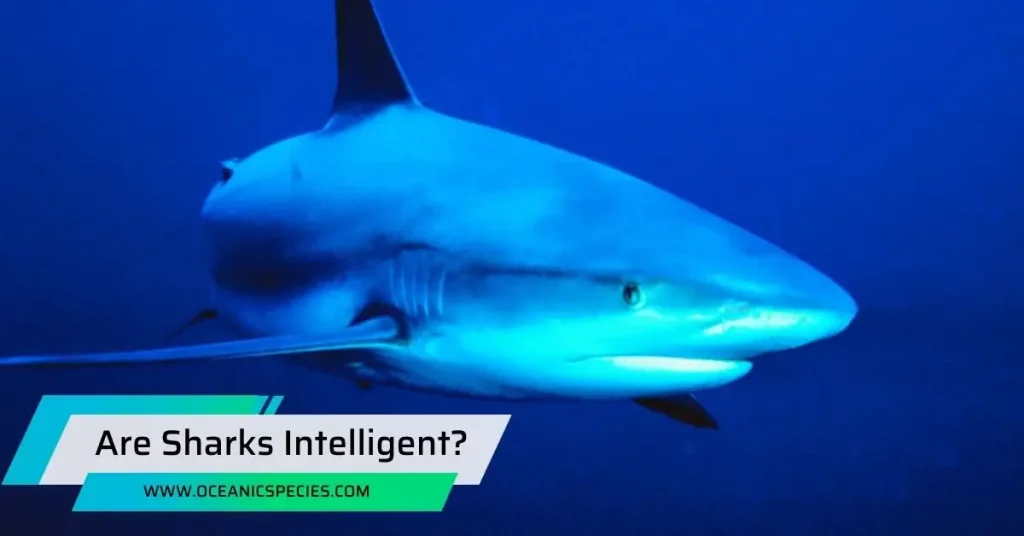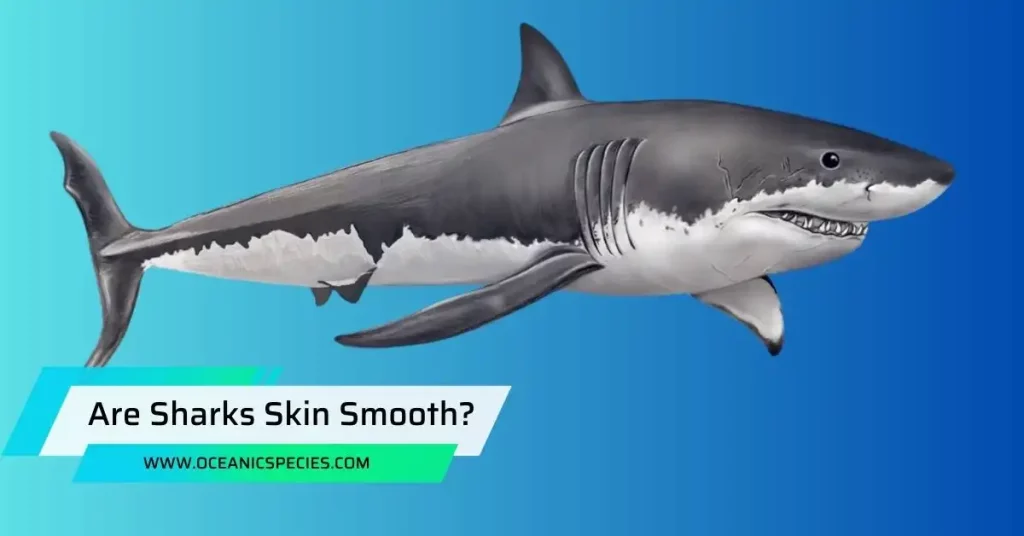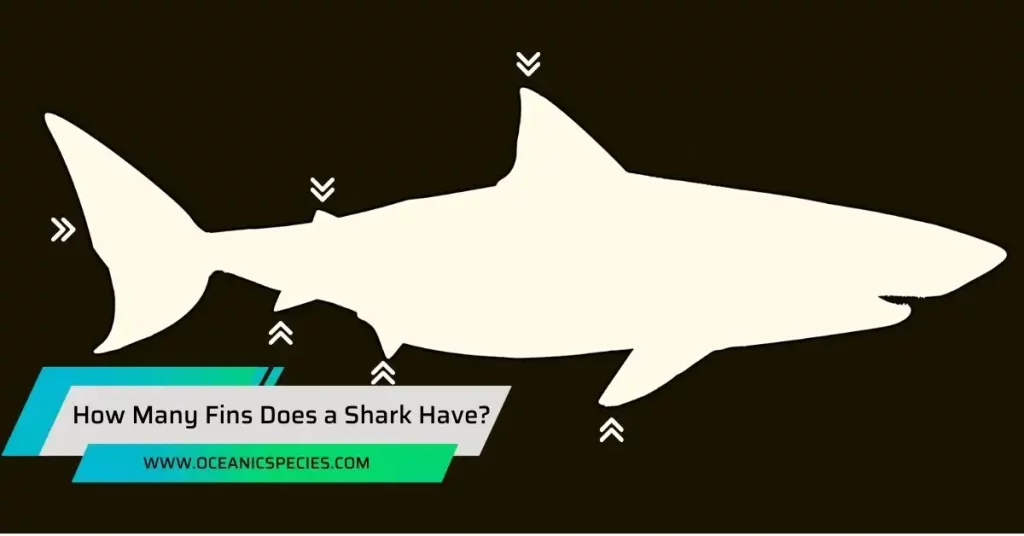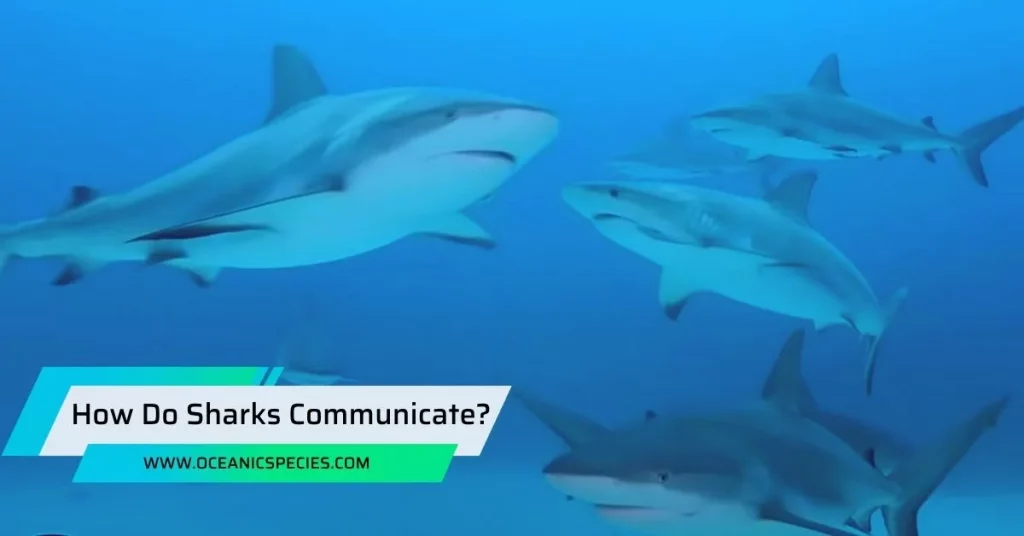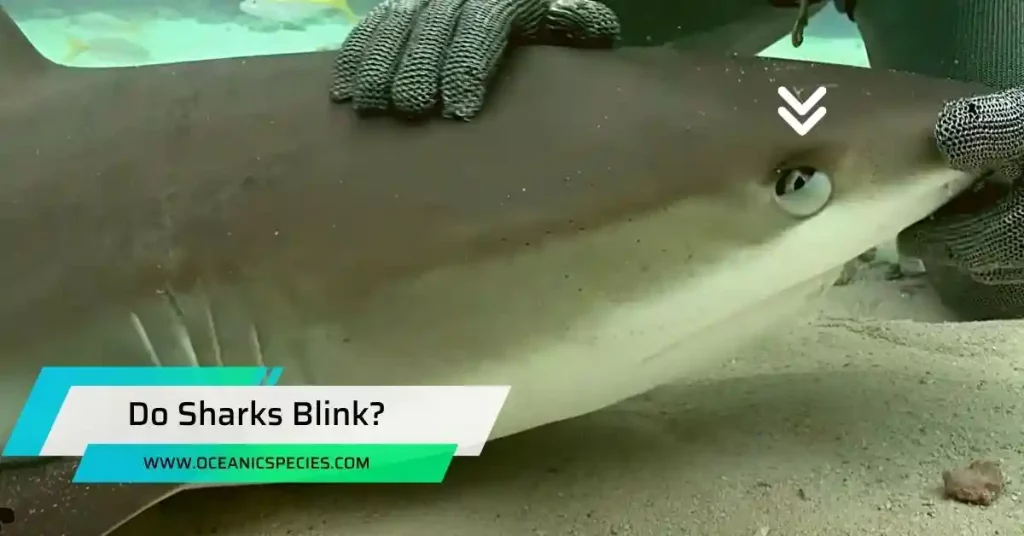Sharks are considered intelligent creatures capable of navigating complex environments and exhibiting problem-solving skills. As apex predators, they possess highly developed senses and demonstrate various behaviours that indicate their intelligence.
Sharks have been known to learn from experience, communicate with each other, and display strategic hunting techniques. Their adaptation to different habitats and survival for millions of years further attest to their intelligence. Understanding the cognitive abilities of sharks can help conservation efforts and enhance our knowledge of the ocean’s ecosystem.
So, let’s dive deeper into the world of shark intelligence.
Differences In Intelligence Between Different Shark Species
Understanding that intelligence can vary significantly between different shark species is crucial. Let’s dive deeper into the subject and explore the unique characteristics and behaviors that define shark intelligence.
Factors Influencing Shark Intelligence
Shark intelligence can be influenced by various factors, including their habitat, feeding habits, and predatory instincts. Here are some key points to consider:
- Social behavior: Some shark species, such as great whites and hammerheads, display more intricate social behaviors than others. They have been observed hunting in groups, communicating through body language, and exhibiting cooperative feeding strategies.
- Foraging and problem-solving: Certain shark species have demonstrated remarkable problem-solving abilities when it comes to hunting for food. For example, lemon sharks are known to use their keen sense of smell and memory to navigate complex mazes in search of hidden rewards.
- Learning and memory: Studies have shown that sharks possess the ability to learn and retain information. Lemon sharks, once again, excel in this area, showcasing impressive memory recall and associative learning skills.
- Tool use: Though not as common as in some other marine mammals, certain shark species have been observed using tools to aid in their hunting efforts. For instance, blacktip reef sharks have been observed using their body as a means of flushing out fish hiding in coral crevices.

Variations In Intelligence Levels
While some shark species exhibit signs of higher intelligence, it is essential to note that intelligence levels can vary across the board. Here are a few examples of variations in shark intelligence:
- High intelligence: Species such as great whites, hammerheads, and lemon sharks are often considered to be among the most intelligent sharks due to their complex social behaviors, problem-solving skills, and memory capabilities.
- Medium intelligence: Sharks such as blacktip reef sharks and nurse sharks may display moderate levels of intelligence, with certain problem-solving abilities and learning capabilities.
- Lower intelligence: Species like the spiny dogfish and sand tiger sharks are known for their more simplified behaviors and relatively lower intelligence levels compared to their counterparts.
The Complexity Of Intelligence In Sharks
Intelligence manifests differently among various species, and what might be considered intelligent behavior in one shark species may not be the case for another. As research continues to shed light on the intricacies of shark intelligence, it becomes evident that these fascinating creatures have much more to offer than their fearsome reputation suggests.
So, whether sharks are intelligent lies in their diverse range of behaviors, adaptability, and survival instincts, which differ significantly among different shark species. Understanding these differences is crucial to unraveling the mysteries surrounding shark intelligence and our perception of these extraordinary creatures of the deep sea.
Can Captive Environments Affect Shark Intelligence?
Sharks kept in captivity for scientific research or public display can provide valuable insights into their behavior and cognitive abilities. Here are some key points to consider:

- Limited space and stimulation: When confined to a smaller space than their natural habitat, sharks may experience reduced opportunities for mental and physical stimulation. This lack of environmental enrichment can potentially impact their cognitive development and intelligence.
- Simplified social interactions: In captive environments, sharks may not have access to the same level of social interaction as their counterparts in the wild. This limitation can limit their ability to engage in complex social behaviors and mental stimulation, which play a significant role in the development of intelligence.
- Food availability and hunting skills: Sharks in captivity are typically provided with regular meals, which eliminates the need for hunting and the associated problem-solving skills required in the wild. Without the need to engage their hunting instincts, captive sharks may not develop and maintain the same level of cognitive abilities as their wild counterparts.
- Lack of natural stimuli: Sharks in captivity are often deprived of the various sensory stimuli present in their natural environment, such as changing water temperatures, currents, and types of prey. This limited exposure to natural stimuli can impact their sensory perception and overall cognitive development.
- Potential for stress: The unnatural environment and conditions of captivity can induce stress in sharks, which can further hinder their cognitive abilities and overall intelligence. Chronic stress has been shown to affect brain function and reduce cognitive performance in animals.
The Evolutionary Significance Of Intelligence In Sharks
The question of shark intelligence has fascinated scientists and marine enthusiasts alike for decades. In this section, we will delve into the evolutionary significance of intelligence in sharks, shedding light on their cognitive abilities and how they have adapted to their aquatic environment.
Evolutionary Adaptations For Survival
Sharks have spent millions of years evolving in the earth’s oceans, enabling them to become highly efficient predators. To survive and thrive in their challenging marine environment, they possess a range of specialized adaptations, including their intelligence. Here are some key points:
- Enhanced sensory perception: Sharks possess a remarkable sensory system, allowing them to detect even the faintest electrical impulses and vibrations in the water. This acute sensory perception gives them an edge in hunting and navigating their surroundings.
- Advanced problem-solving skills: Research has shown that sharks exhibit astonishing problem-solving abilities. They can navigate mazes, learn from previous experiences, and even respond to visual and auditory cues. These skills indicate a level of intelligence beyond mere instinctual behavior.
- Social interactions: Contrary to popular belief, sharks are not solitary creatures all the time. Some species, such as the hammerhead shark, engage in complex social behaviors. They form social hierarchies and communicate with each other through body language and electrical signals.
The Role Of Intelligence In Predatory Behavior
Sharks’ intelligence plays a crucial role in their predatory behavior. Their ability to analyze and make split-second decisions is essential for hunting and catching their prey effectively. Consider the following points:
- Strategic hunting: Sharks employ various hunting techniques, depending on the type of prey and the environmental conditions. Their intelligence allows them to strategize based on factors such as water temperature and prey behavior, increasing their hunting success rate.

- Learning from experience: Sharks have been observed adapting their hunting methods based on previous experiences. For example, some studies suggest that sharks can learn to associate certain fishing vessels with an abundance of food, exhibiting a level of learning and memory retention.

- Adapting to changing environments: Sharks’ intelligence enables them to adapt to changes in their environment, such as shifts in prey availability or environmental disturbances. This adaptability is crucial for their long-term survival and ecological balance.
How Do Sharks Demonstrate Problem-Solving Skills In Natural Environment?
Sharks, often depicted as mindless killers, are actually intelligent creatures that exhibit impressive problem-solving skills in their natural environment. These skills not only ensure their survival but also highlight their ability to adapt and navigate their surroundings. Let’s delve into how sharks demonstrate their problem-solving prowess:
- Foraging techniques: Sharks employ various problem-solving strategies when it comes to finding and capturing prey. Some species, like the lemon shark, have been observed using their acute sense of smell to locate hidden prey, demonstrating their ability to solve the problem of locating food efficiently.
- Social structure: Some shark species, such as the gray reef shark, exhibit complex social structures that require problem-solving abilities. They form hierarchies and exhibit cooperative behaviors, such as hunting in packs. This cooperation requires problem-solving skills to effectively communicate and coordinate their movements.
- Navigation and migration: Sharks, known for their incredible navigational abilities, face the challenge of migrating across vast distances. Many species, including great white sharks, demonstrate complex navigational skills. They use magnetic fields, celestial cues, and even ocean currents to map their path accurately, solving the problem of finding their way across vast stretches of open ocean.
- Feeding tactics: Sharks have evolved various feeding tactics that highlight their problem-solving capabilities. For instance, tiger sharks are known to crack open the shells of hard-shelled prey by strategically using rocky surfaces on the seafloor. This demonstrates their ability to adapt their feeding techniques to solve the problem of accessing otherwise inaccessible prey.
- Shelter and camouflage: Some shark species, like the bamboo shark, have developed unique problem-solving skills related to shelter and camouflage. They have the ability to bury themselves in the sand, effectively disappearing from view and avoiding potential predators. This showcases their ability to solve the problem of self-preservation through clever adaptation techniques.

- Tool use: While not as extensively studied as in some other animals, there is evidence to suggest that sharks may also employ tool use to solve certain problems. Some sharks have been observed using objects like coral or rocks to help them extract prey from crevices. This innovative behavior suggests their ability to think critically and devise creative solutions.
Cognitive Abilities That Sharks Possess
Throughout history, sharks have been feared and misunderstood creatures. Often depicted as ruthless and mindless killers, the reality is far more complex. Sharks possess a surprising range of cognitive abilities, making them more intelligent than we may have previously thought.
In this section, we will explore the fascinating cognitive abilities that sharks possess.
Problem-Solving Skills
Sharks have shown impressive problem-solving skills, suggesting a higher level of intelligence. Some species have been observed using their keen senses and intelligence to overcome obstacles and find creative solutions to challenges they encounter in their environment.
- They are able to navigate mazes to reach a reward, showcasing their ability to learn and think critically.
- Through trial and error, sharks have demonstrated problem-solving skills, adapting their tactics until they achieve success.
Communication Abilities
Despite their reputation as solitary predators, sharks are surprisingly social creatures. They have the ability to communicate with one another through a variety of channels.

- Sharks use body language and subtle movements, such as tail flicks and fin postures, to convey messages to both rivals and potential mates.
- Some species of sharks even use low-frequency vocalizations to communicate over long distances in the water.
Memory And Learning
Studies have shown that sharks possess impressive memory and learning capabilities. They can remember important information about their environment and use it to their advantage.
- Sharks have been observed returning to specific feeding grounds year after year, indicating their ability to recall locations and navigate long distances.
- They can also learn through observation and mimic the behavior of other sharks, displaying remarkable adaptive skills.
Sensory Perception
Sharks possess a range of highly developed senses that contribute to their cognitive abilities. These sensory perceptions enable them to navigate their environment, locate prey, and avoid potential threats.
- Their sense of smell is particularly acute, allowing them to detect minute amounts of blood in the water from long distances.
- Sharks also have excellent vision, utilizing specialized structures in their eyes to spot prey and potential predators even in low-light conditions.
Curiosity And Exploration
Contrary to popular belief, sharks exhibit curiosity and a drive to explore their surroundings. They actively investigate objects and phenomena in their environment, displaying a level of inquisitiveness that suggests a higher cognitive function.

- Sharks have been observed investigating and interacting with unfamiliar objects, such as research equipment and underwater structures.
- This curiosity indicates a desire to understand and learn about their surroundings, highlighting their cognitive abilities.
How Do Scientists Define And Measure Intelligence In Sharks?
Sharks, as majestic and powerful sea creatures, have long fascinated scientists and researchers. One burning question that has intrigued inquisitive minds is whether sharks are intelligent beings. But how exactly do scientists define and measure intelligence in these fascinating marine animals?
Let’s delve into the world of shark intelligence and explore the ways scientists analyze and assess their cognitive abilities.
Methods Of Measuring Shark Intelligence
To gauge the intelligence of sharks, scientists employ various methods and behavioral studies. These approaches help them understand the cognitive capabilities and problem-solving skills of these apex predators. Here are some key methods used to measure shark intelligence:
- Learning experiments: Scientists conduct experiments that involve sharks being trained to associate specific signals or cues with rewards or punishments. By observing how quickly sharks learn and remember these associations, researchers can assess their intelligence.
- Maze tests: Similar to learning experiments, maze tests require sharks to navigate through complex underwater mazes to reach a reward. The ability to swiftly solve these mazes demonstrates the shark’s cognitive skills and problem-solving abilities.
- Social behavior observations: Observing the social interactions among sharks provides insights into their intelligence. Complex social hierarchies and interactions among individuals may indicate higher cognitive abilities, such as recognition, memory, and communication.
- Memory retention analysis: Researchers study the shark’s ability to remember information over extended periods. Memory retention experiments assess how well sharks remember and recall learned behaviors or associations.
Key Findings On Shark Intelligence
Through extensive research and analysis, scientists have made several intriguing discoveries about shark intelligence. Here are some key findings:
- Sharks exhibit varying degrees of intelligence across different species. Some species, such as the great white shark and the hammerhead shark, have shown remarkable problem-solving skills and complex behaviors.
- Sharks possess excellent sensory perception, allowing them to detect prey or other objects in their environment with precision. Their heightened sensory abilities contribute to their overall cognitive prowess.
- Studies have also revealed that sharks exhibit social behavior, suggesting a level of intelligence necessary for social interactions and group dynamics.
- While shark intelligence may not match that of mammals like dolphins or primates, these fascinating creatures display an impressive array of cognitive abilities tailored to their unique marine environment.
- It is important to remember that intelligence is a multifaceted concept, and scientists continue to explore and unravel different aspects of shark intelligence using innovative research methods and approaches.
The Role Of The Shark’S Brain Size And Structure In Their Intelligence
In this section, we will explore the role of a shark’s brain size and structure in determining its level of intelligence.
The Evolution Of The Shark’S Brain Size And Structure
Sharks have been around for hundreds of millions of years and have evolved with a unique brain structure. The size of a shark’s brain relative to its body is smaller compared to other vertebrates. However, this doesn’t necessarily mean that sharks are less intelligent. In fact, their brain structure has adapted to meet their specific needs.

Understanding The Functions Of A Shark’S Brain
- The shark’s brain is divided into several regions, each responsible for different functions.
- The olfactory bulbs are highly developed, allowing sharks to have an exceptional sense of smell.
- The optic lobes are responsible for processing visual information, enabling sharks to detect motion and prey in their environment.
- The cerebellum, though comparatively small, plays a crucial role in coordinating movement and maintaining balance.
- The medulla oblongata controls the shark’s vital functions, such as respiration and digestion.
Social Behavior And Learning Abilities
Contrary to popular belief, sharks are not solitary creatures but exhibit social behavior. Some shark species, like the grey reef shark, form groups that cooperate during hunting and display complex social interactions.
Sharks also possess learning capabilities, as studies have shown that they can adapt their behavior in response to changing environmental cues. For example, experiments have demonstrated that sharks can be trained to associate certain sounds or visual stimuli with rewards.
A Matter Of Perception
Intelligence is a multifaceted concept, and its evaluation in sharks may differ from that of humans or other mammals. While sharks may not possess the problem-solving abilities or cognitive skills seen in primates, they exhibit remarkable adaptations that have allowed them to thrive for millions of years. Their sensory capabilities and ability to navigate vast ocean territories showcase their intelligence in their own unique way.
Embracing The Diversity Of Intelligence
- It is important to recognize that intelligence comes in various forms and is not solely defined by cognitive abilities.
- Sharks, with their finely tuned senses and adaptations to their environment, exemplify a different kind of intelligence that is specialized for their survival.
- By appreciating the diversity of intelligence in the animal kingdom, we can gain a deeper understanding and respect for the remarkable creatures that inhabit our planet.
Frequently Asked Questions
Do Sharks Have The Ability To Learn?
Yes, sharks have the ability to learn and adapt to their environment, displaying intelligence in their hunting techniques.
Can Sharks Recognize Individual Humans?
While sharks may be able to distinguish certain smells and sounds, they are not known to recognize individual humans.
Do Sharks Engage In Social Behavior?
Some species of sharks, such as hammerheads, exhibit social behavior by traveling in schools or groups for protection and mating.
Can Sharks Solve Problems?
Sharks have been observed solving problems in various situations, showcasing their problem-solving skills and intelligence in their environment.
Conclusion
It is clear that sharks possess a remarkable level of intelligence, surpassing our preconceived notions. Their ability to navigate vast oceanic territories, adapt to changing environments, and exhibit problem-solving and social behaviors proves their cognitive prowess. The complexities of shark behavior and their interactions within their ecosystems lend credence to their status as intelligent creatures.
While their intelligence may differ from human intelligence, they have evolved unique abilities that allow them to thrive in their aquatic realms. Appreciating and understanding the true extent of sharks’ intelligence not only enhances our knowledge of these magnificent animals but also promotes their conservation in light of the threats they face.
As we strive to unlock the mysteries of the ocean, let us continue to marvel at the wonders of nature and recognize the intelligence that exists beyond our conventional understanding.

